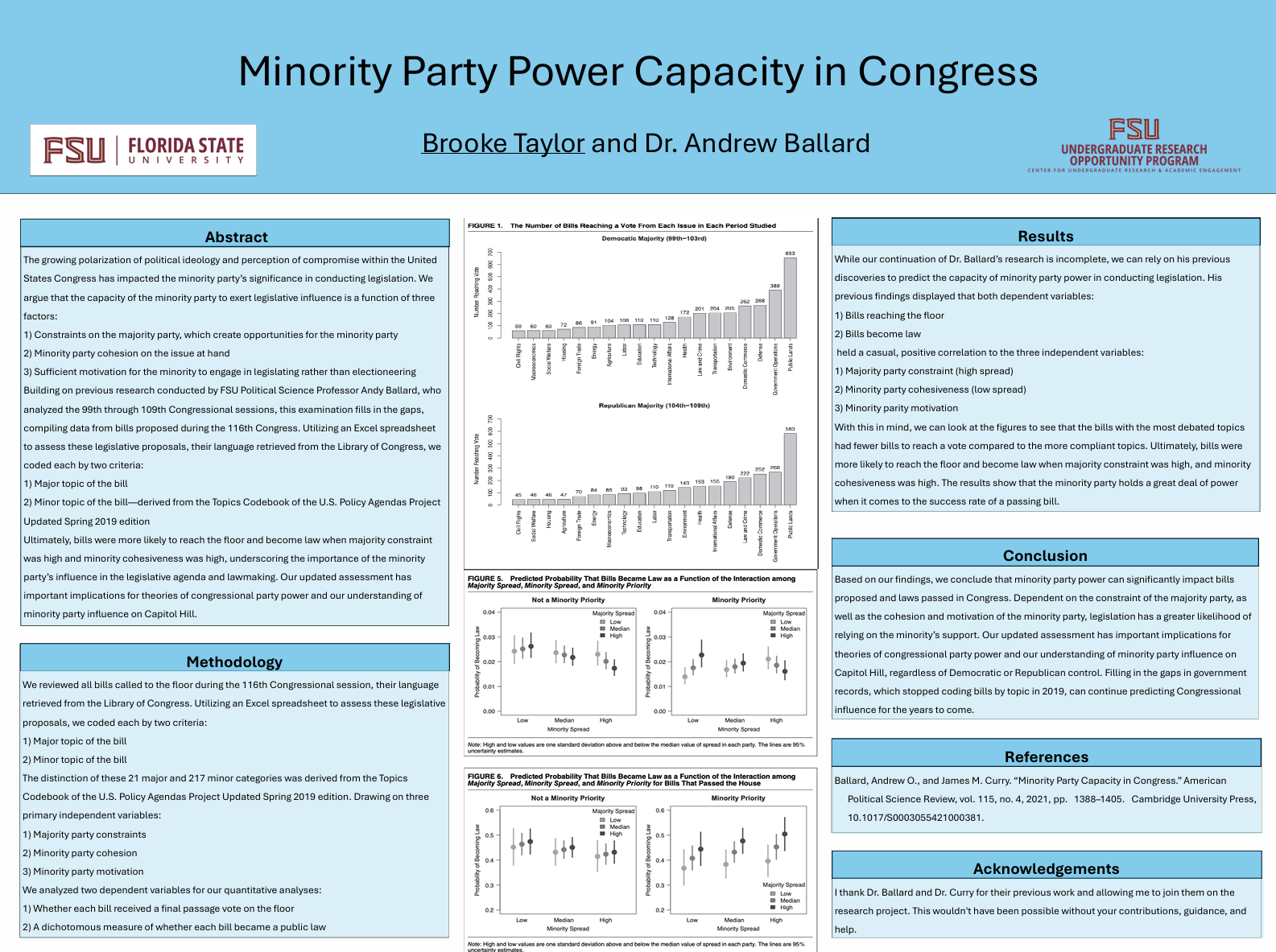Research Symposium
25th annual Undergraduate Research Symposium, April 1, 2025
Brooke Taylor Poster Session 1: 9:30 am - 10:30 am / Poster #274

BIO
I am interested in learning more about how our government works and interacts with one another and with the people. I have been in the field of politics since the age of 15, which is why I am so passionate about furthering my education, as well as others, on this important topic that affects everyone in the United States.
Minority Party Power Capacity in Congress
Authors: Brooke Taylor, Andrew BallardStudent Major: Political Science
Mentor: Andrew Ballard
Mentor's Department: Political Science Mentor's College: Social Sciences and Public Policy Co-Presenters:
Abstract
The growing polarization of political ideology and perception of compromise within the United States Congress has impacted the minority party’s significance in conducting legislation. We argue that the capacity of the minority party to exert legislative influence is a function of three factors:
1) Constraints on the majority party, which create opportunities for the minority party
2) Minority party cohesion on the issue at hand
3) Sufficient motivation for the minority to engage in legislating rather than electioneering Building on previous research conducted by FSU Political Science Professor Andy Ballard, who analyzed the 99th through 109th Congressional sessions, this examination fills in the gaps, compiling data from bills proposed during the 116th Congress. Utilizing an Excel spreadsheet to assess these legislative proposals and their language retrieved from the Library of Congress, we coded each by two criteria:
1) Major topic of the bill
2) Minor topic of the bill—derived from the Topics Codebook of the U.S. Policy Agendas Project Updated Spring 2019 edition
Ultimately, bills were more likely to reach the floor and become law when majority constraint was high and minority cohesiveness was high, underscoring the importance of the minority party’s influence in the legislative agenda and lawmaking. Our updated assessment has important implications for theories of congressional party power and our understanding of minority party influence on Capitol Hill.
Keywords: Political Science, Minority Party, Congress


